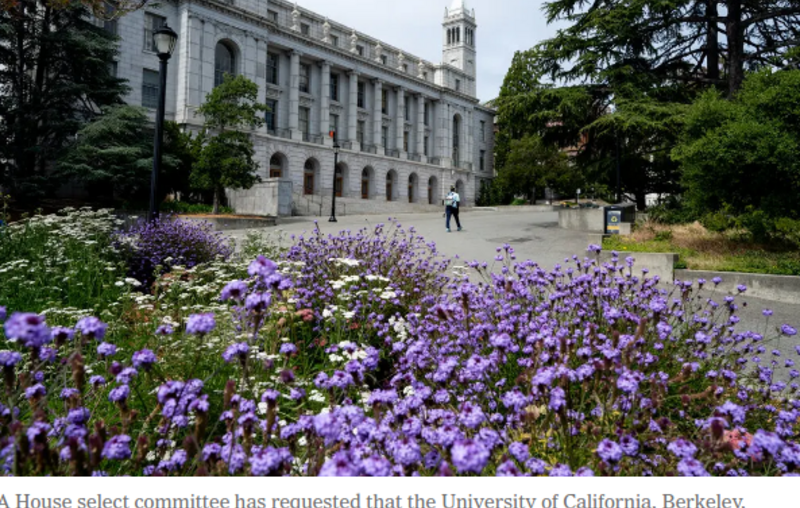by Ana Swanson at nytimes.com
A congressional committee focused on national security threats from China said it had “grave concerns” about a research partnership between the University of California, Berkeley, and several Chinese entities, claiming that the collaboration’s advanced research could help the Chinese government gain an economic, technological or military advantage.
In a letter sent last week to officials at Berkeley and the University of California system, the House Select Committee on the Chinese Communist Party requested extensive information about the Tsinghua-Berkeley Shenzhen Institute, a collaboration set up in 2014 with China’s prestigious Tsinghua University and the Chinese city of Shenzhen.
The letter pointed to the institute’s research into certain “dual-use technologies” that both civilian and military institutions employ, like advanced semiconductors and imaging technology used for mapping terrain or driving autonomous cars.
The committee also questioned whether Berkeley had properly disclosed Chinese funding for the institute, and cited its collaborations with Chinese universities and companies that have been the subjects of sanctions by the United States in recent years, like the National University of Defense Technology, the telecom firm Huawei and the Chinese drone maker DJI.
It also said Berkeley faculty serving at the institute had received funding from the Defense Advanced Research Projects Agency and other U.S. funding for the development of military applications, raising concerns about Chinese access to those experts.
In April, for example, a team from a Shenzhen-based lab that describes itself as being supported by the Tsinghua-Berkeley Shenzhen Institute said it had won a contest in China to optimize a type of advanced chip technology that the U.S. government is now trying to prevent Chinese companies from acquiring, the letter said.
It is not clear what role the university had in that project, or if the partnership, or the institute’s other activities, would violate U.S. restrictions on China’s access to technology. In October, the United States set significant limits on the type of advanced semiconductor technology that could be shared with Chinese entities, saying the activity posed a national security threat.
“Berkeley’s P.R.C.-backed collaboration with Tsinghua University raises many red flags,” the letter said, referring to the People’s Republic of China. It was signed by Representatives Mike Gallagher, a Wisconsin Republican and the committee’s chair, and Virginia Foxx, a Republican from North Carolina who is the committee chair on education and the work force.
In a statement to The New York Times, U.C. Berkeley said it took concerns about national security “very seriously” and was committed to comprehensive compliance with laws governing international academic engagement.
“The campus is reviewing past agreements and actions involving or connected to Tsinghua-Berkeley Shenzhen Institute” and will “fully and transparently cooperate with any federal inquiries,” it said.

